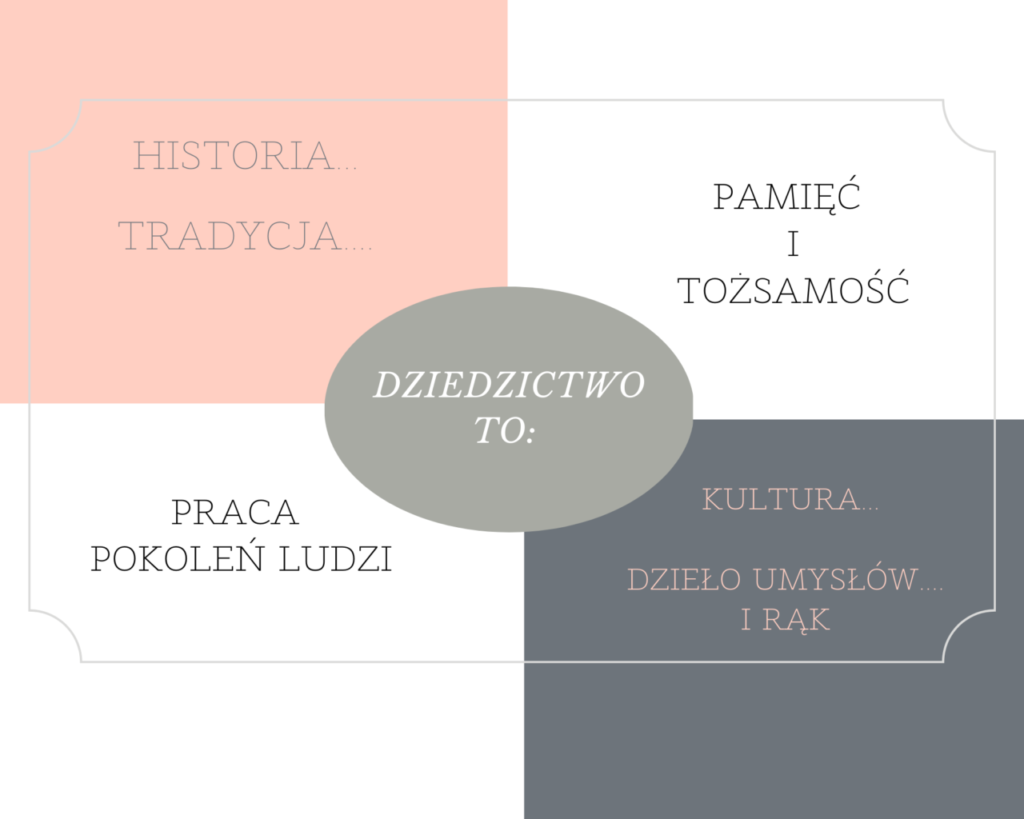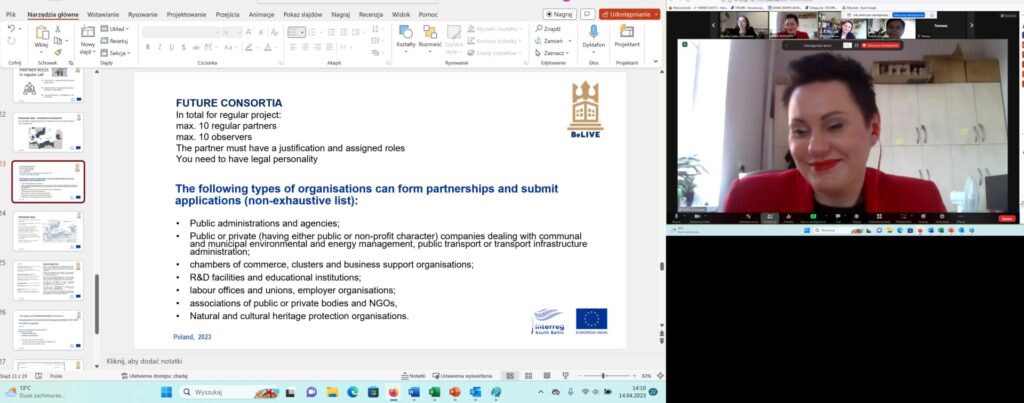On 14 April, the project BeLIVE – BALTIC LIVING HISTORY LESSONS was launched with an online conference. It is an undertaking carried out with the participation of Polish and Lithuanian local authorities and organisations: The City of Malbork, the Association of Communes “Polish Gothic Castles” from Olsztyn and the Lithuanian towns of Silute and Neringa. The project leader is the Association of Polish Municipalities Euroregion Baltic.
The project aims to build strong Baltic roots based on the country’s cultural heritage resources through their dissemination using modern and creative tools.
The project responds to the need to explore the world in a more accessible way in unpredictable times when historical objects and cultural assets are available today and access may not be available tomorrow.

The project partnership is built on the diversity of the partners’ tangible and intangible cultural resources and assets. The BeLIVE project wants to exploit all the characteristics of the partner entities and strengthen the potential of the South Baltic.
During the online conference, the outline of the project, the steps we need to take to make things happen, was once again presented to all partners. And the first activity will be a workshop, where all partners will meet live. Together we will explore the potential of our cities and resources. We will start with our Lithuanian partner Silute, a town located a few kilometres from the Curonian Lagoon. The town of Neringa, our second Lithuanian partner in the BeLIVE project, is located on the Curonian Spit.
The tasks we want to address in the seed project are diagnosis, discernment and baseline data, which we will use to gather valuable information. In the seed project we will be focused on gathering information about the resources and opportunities for building a common Baltic identity.
The project is very much in development and the provisions of the seed proposal provide us with a starting framework.

The BeLIVE project is implemented from the Interreg South Baltic Seed Money Programme, which targets countries in the Baltic Sea area. As a Seed Money Programme, it aims to facilitate the process of preparing full-scale projects to be implemented and funded under the regular calls for proposals of the Interreg South Baltic Programme. It aims to stimulate the development of high quality projects and serves as an incentive for potential beneficiaries to convince local decision-makers to develop a project idea, as the relevant costs are co-financed by the European Regional Development Fund (ERDF).